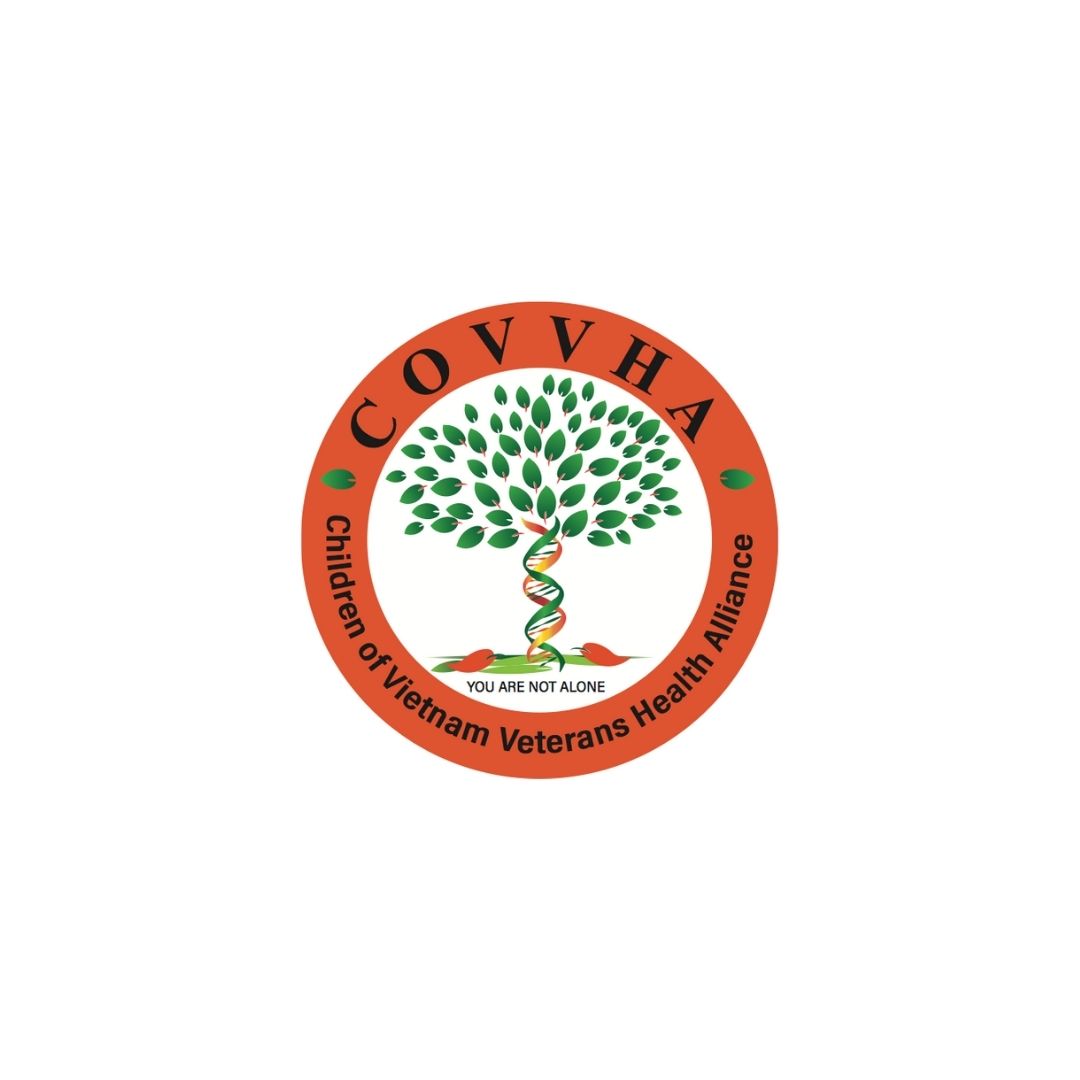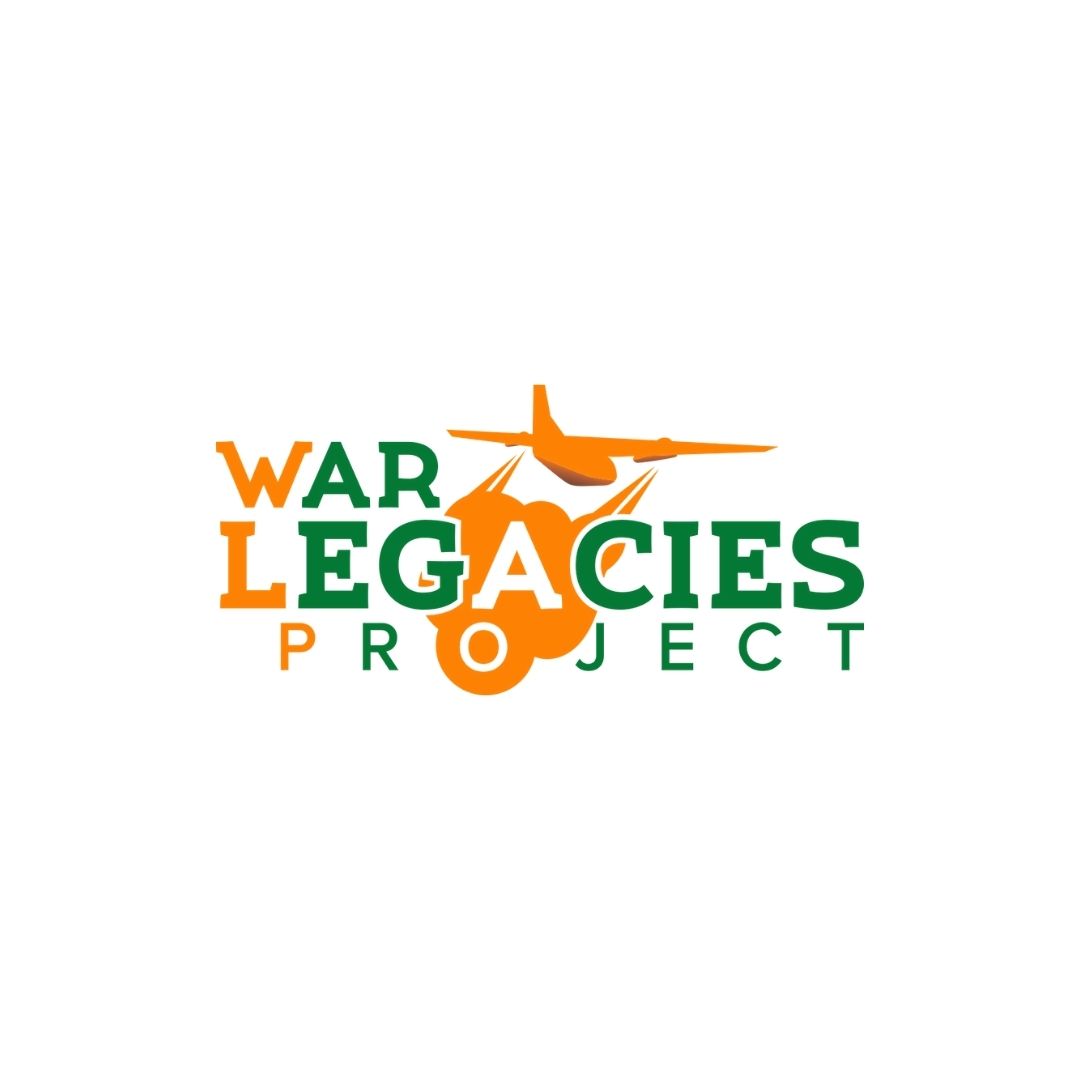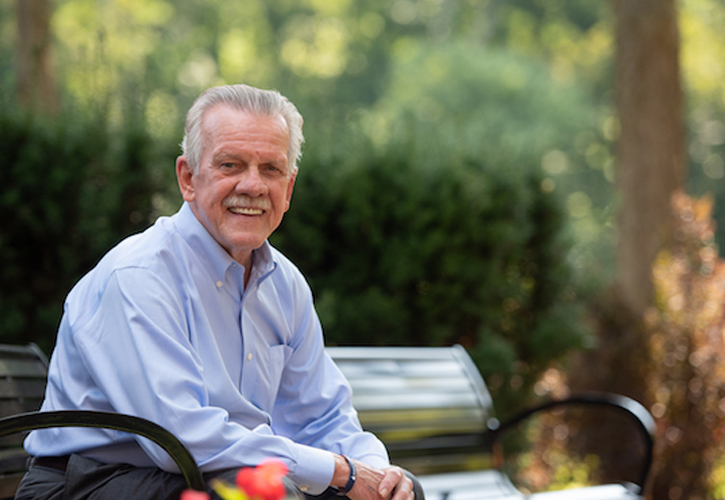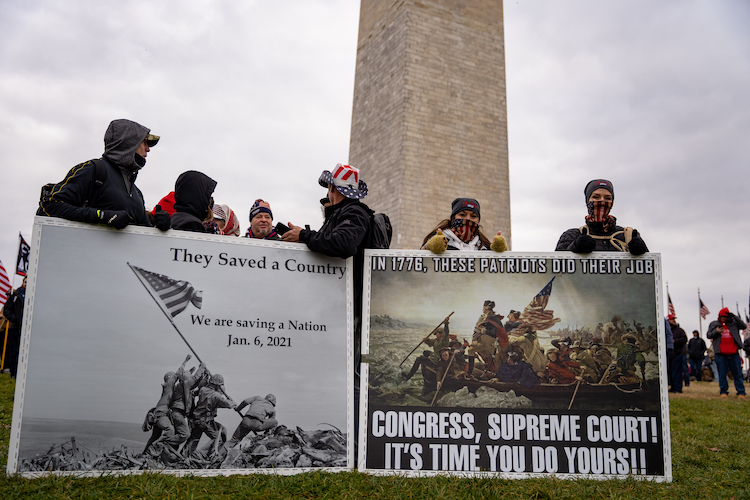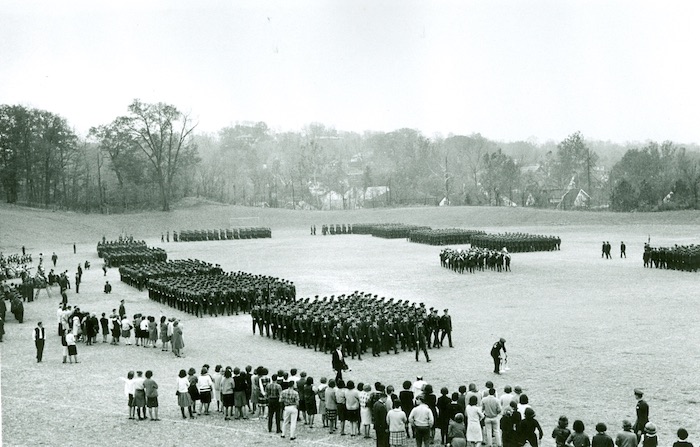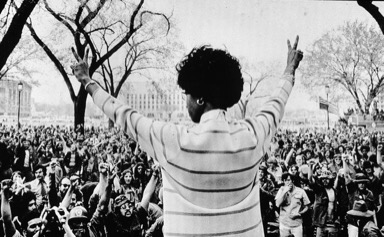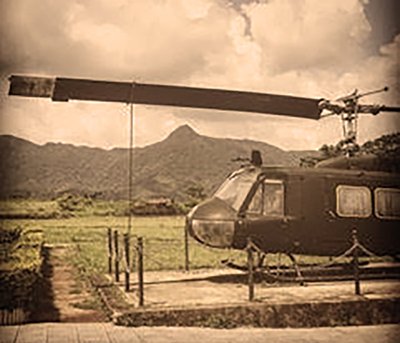Vietnam Legacies Project

The Vietnam Legacies Project uses a transitional justice framework to examine the enduring legacies of America's war in Southeast Asia. Project members recently completed a comprehensive report on war legacies, launched in collaboration with Washington’s Stimson Center. The report is informed by the perspectives of veterans, refugees, and other impacted persons. Key findings were first shared at a scholar-practitioner symposium hosted virtually by the Human Rights Center in October 2020.
Project Report
Coming to Terms with Legacies of the Vietnam War
America’s war in Vietnam ended fifty years ago, but the legacies of that conflict remain potent. This report takes stock of US efforts to come to terms with the legacies of war in Southeast Asia, and advises what remains to be done.
Afghanistan Legacies: Confronting the End of America’s Longest War
Informed by the work of the Vietnam Legacies Project, this virtual event will provide context for the end of America’s 20-year war in Afghanistan, the unfolding humanitarian and political crises in that country, and the lessons to be learned from previous conflicts like America's war in Vietnam. Featuring perspectives from journalists, refugees, NGO and veteran activists and historians.
Partnership with Stimson Center
The Human Rights Center recently joined the War Legacies Working Group at Washington's Stimson Center.
Collaborating on Advocacy
Together with Project RENEW, Legacies of War, Roots of Peace, and other members of the Working Group, HRC staff are advocating action on war legacies.
Symposium Resources
Watch any of the symposium panel recordings, linked below:
Session 1
Thursday, October 22, 1:00-4:45pm EDT - Moderator: William Trollinger
Panel 1: Transnational Legacies of War
This panel focuses on the complex identities that emerged as a legacy of the Vietnam War. Participants include: Selika Ducksworth-Lawton, an expert on race relations within the US military during the Vietnam War; Allison Varzally, author of Children of Reunion; and Đạt Duthịnh, a Vietnamese-born war refugee who has lived in the US since the mid-1960s and engages in peace advocacy with the Friends Committee on National Legislation.
Panel 2: Militarism and Right-Wing Movements
This panel assesses anti-militarism advocacy and the links between right-wing movements and militarism in contemporary America. Participants include: Andrew Bacevich, author of The Age of Illusions; Cynthia Enloe, author of Globalization and Militarism: Feminists Make the Link; Scott Laderman, author of The ‘Silent Majority’ Speech: Nixon, Vietnam, and the Rise of the New Right; and David Cortright, co-author of Waging Peace in Vietnam.
Breakout Conversation About Advocacy
Join HRC staff and symposium participants for a breakout conversation about war legacy issues and advocacy.
Session 2
Friday, October 23, 9:00-11:30am EDT - Moderator: Ashleigh Lawrence-Sanders
Panel 3: Reconciliation and Rebuilding
This panel focuses on efforts to rebuild war-torn landscapes in Viet Nam, highlighting the role of transnational organizations in supporting postwar rebuilding and reconciliation. Participants include: Chuck Searcy and Dang Quang Toan from Project RENEW; John Goines III from the DPAA Laboratory at Wright-Patterson Air Force Base; and Mike Boehm from Madison Quakers, Inc.
This panel focuses on legal accountability as a key mechanism of post-war transitional justice. Participants include: Colleen Murphy, author of The Conceptual Foundations of Transitional Justice; Patrick Hagopian, author of American Immunity: War Crimes and the Limits of International Law; Katherine Gallagher of the Center for Constitutional Rights; and David Kieran, author of Forever Vietnam: How a Divisive War Changed American Public Memory.
Session 3
Friday, October 23, 1:00-4:15pm EDT - Moderator: Tony Talbott
Panel 5: Reparation and Healing
This panel focuses on the post-conflict work of veterans and children of veterans, and considers how veterans’ advocacy for reparation and healing contributes to forging peace. Participants include: Ben Schrader, author of Fight to Live, Live to Fight and University of Dayton affiliate; Garett Reppenhagen, Executive Director of Veterans for Peace; Heather Bowser, President of the Children of Vietnam Veterans Health Alliance (COVVHA); and Susan Hammond of the War Legacies Project.
Panel 6: Representation and Memorialization
This panel considers how literature, visual media, and memorials have helped shape the memory of war in America and Viet Nam. Panelists include: Yến Lê Espiritu, author of Body Counts: The Vietnam War and Militarized Refugees; Thomas Grace, author of Kent State: Death and Dissent in the Long Sixties; Paul Morrow, Human Rights Fellow at the University of Dayton and author of Unconscionable Crimes: How Norms Explain and Constrain Mass Atrocities; and Bich-Ngoc Turner, lecturer in Vietnamese language and literature at the University of Washington.
Join HRC staff and symposium participants for a concluding conversation about war legacy issues and advocacy. Featuring Tim Rieser, Senior Foreign Policy Aide to Senator Patrick Leahy, and John Meagher, UD '63.
To access the papers presented at October’s Vietnam Legacies Symposium, please contact the Human Rights Center at hrc@udayton.edu. Further readings from Symposium participants appear below.
Mary McCarty, Healing Souls
Charles Bailey, From Enemies to Partners: Vietnam, the U.S. and Agent Orange
David Cortright, Waging Peace in Vietnam
Cynthia Enloe, Globalization and Militarism: Feminists Make the Link
Yến Lê Espiritu, Body Counts: The Vietnam War and Militarized Refugees
Thomas Grace, Kent State: Death and Dissent in the Long Sixties
Patrick Hagopian, The Vietnam War in American Memory
David Kieran, Forever Vietnam: How a Divisive War Changed American Public Memory
Scott Laderman, The ‘Silent Majority’ Speech: Nixon, Vietnam, and the Rise of the New Right
Paul Morrow, Unconscionable Crimes: How Norms Explain and Constrain Mass Atrocities
Colleen Murphy, The Conceptual Foundations of Transitional Justice
Ben Schrader, Fight to Live, Live to Fight: Veteran Activism After War
Allison Varzally, Children of Reunion: Vietnamese Adoptions and the Politics of Family Migrations
Welcome All to the Symposium
Welcome message from U.S. Vietnamese Ambassador Ha Kim Ngoc
Welcome message from University of Dayton President Eric Spina
Supporting Partners

A Campus Impacted
The Vietnam War transformed campuses across America. Our web exhibit explores the war's impact at UD, as captured in letters, photographs, and oral histories.

